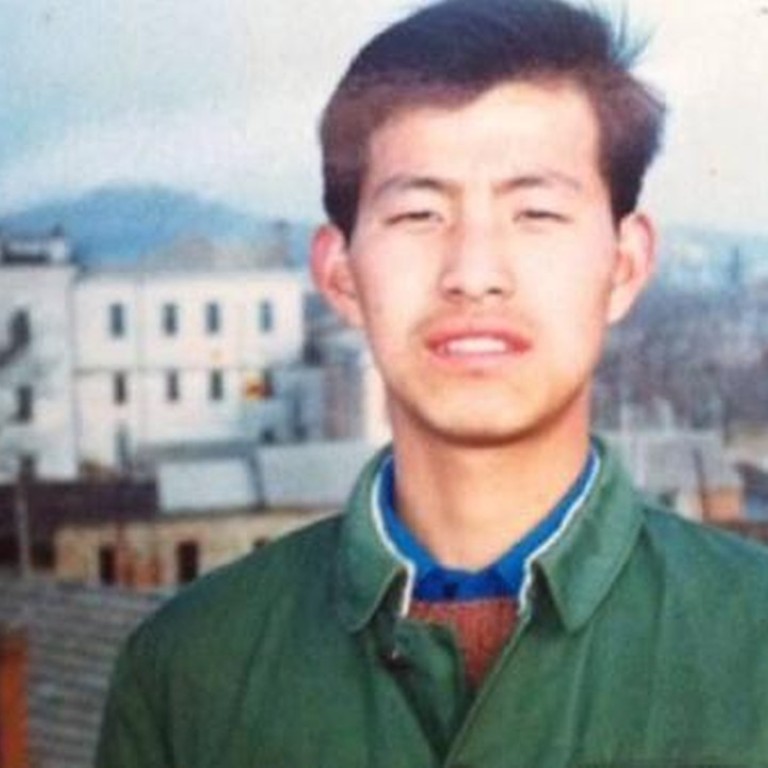
Where’s the proof? Chinese man accused of rape seeks justice after 23 years and four trials
- Jin Zhehong, now 50, says previous confessions, which were used as evidence, were tortured out of him
- Amid a rehearing by the Jilin High People’s Court, both prosecution and defence lawyers agree ‘the facts were unclear and the evidence is insufficient’
A decades-old murder case in China’s far northeast has been reopened as the defendant professes his innocence and says previous confessions, which had been used as evidence, were tortured out of him.
The case, involving the 1995 rape and murder of a 20-year-old woman in Jiyong county, Jilin province, has already been the subject of three trials, and been put under judicial review twice.
The defendant, Jin Zhehong, 50, has been in custody for 23 years and sentenced to death four times.
On Wednesday, the hearing was restarted for the fourth time by the Jilin High People’s Court and lasted more than three hours, Legal Daily reported. The court did not announce a judgment, though Jin’s lawyer expressed optimism.
He repeatedly accused the investigators of using torture to extract confessions out of him
Both prosecution and defence lawyers agreed that “the facts were unclear and the evidence is insufficient”.
Jin’s son, sister and brother anxiously waited outside the courtroom for news of the hearing.
“The court recognised that Jin had not committed a crime and was therefore not a suspect. I believe that this time, the results can be announced soon,” Jin’s lawyer, Xi Xiangdong, told Legal Daily after the hearing.
“We really hope that after his rehabilitation, Jin Zhehong can rightfully return to society.”
Jin was originally charged with murder after the woman’s body was found buried in the wilderness in 1995.
The original court charges claimed that Jin let the woman hitchhike with him on his motorbike to the town of Shuanghe, had sex with her, then killed her and left her body in a ditch.
The basis for the charge rested almost entirely on Jin’s confession, since there was no direct physical evidence or eyewitnesses linking him to the crime, Xi was quoted as saying by news portal Thepaper.cn.
Man executed for rape, murder cleared by China’s highest court
“He repeatedly accused the investigators of using torture to extract confessions out of him. He was always appealing while he was in prison, but the case only started to turn around in 2014,” Xi said.
That year, Chinese state media reported that there were numerous issues surrounding the case, leading the Jilin High People’s Court to conduct a review. Key details such as Jin’s motive, the time and location of the killing and the murder weapon were found to be unclear.
The court decided in March this year to launch the latest retrial, since its review found that the evidence leading to Jin’s original conviction was “not true and insufficient”, Xi said.
Executed teenager cleared of rape and murder, 18 years after China put him to death
While Jin was in prison, his mother died and his wife remarried, Xi said at a pre-trial meeting. “Without family members to rely on, Jin Zhehong repeatedly begged ‘Don’t give up on me’,” he said.
Jin’s son, Jin Yongxin, was two years old when his father was imprisoned. “From childhood to adulthood, I only saw my father in prison,” Thepaper.cn quoted him as saying.
“The visits were limited to 20 minutes each time, and all the visits I made do not add up to four hours. Sometimes I couldn’t get a sentence in because I went with other family members.
“This case has been tried for several years, and all along we have believed he is innocent.”
China sends message to the private sector as tycoon exonerated
Jin Yongxin said he had bought new clothes and personal supplies in preparation for his father’s release, and added that he was concerned about Jin’s health.
The case has been closely watched on Chinese social media, where the discussion has been tightly controlled.
“The truth has been revealed in this situation, but what about the many, many other cases like this that do not get brought to light?” read one top-rated comment on Weibo.
Many Chinese newspapers have likened it to Jilin’s version of the “uncle-nephew unjust case”, in which two men were wrongly imprisoned for 10 years for the rape and murder of a 17-year-old hitchhiker in Hangzhou in 2003.
Nine controversial Hong Kong court cases and why they caused a stir
The men were acquitted through a retrial in 2013, when DNA evidence from the victim proved their innocence. They were awarded a total of 2.21 million yuan (US$318,000) in state compensation from Zhejiang High People’s Court.
Wang Yuqin, a criminal defence lawyer based in Jinan, was also optimistic about the case’s outcome.
“I think this time, a verdict of innocence is likely to be announced. The outcome will be good,” she said.
Chinese courts have one of the highest conviction rates globally, at 99.9 per cent in 2016, according to government figures. In comparison, the conviction rate in US federal court is 93 per cent.
China’s Supreme People’s Court abolished the use of conviction rates as a performance benchmark in 2014, in the hopes that it would lead to fewer miscarriages of justice and reduce the instances of torture and forced confessions.
China’s low rate of legal defence representation last year prompted Beijing to begin a free legal aid pilot programme in certain parts of the country for defendants who cannot afford to hire a lawyer.
“Now that all criminal cases have defence lawyers, the legal defence rate is better [than before],” Wang said.

